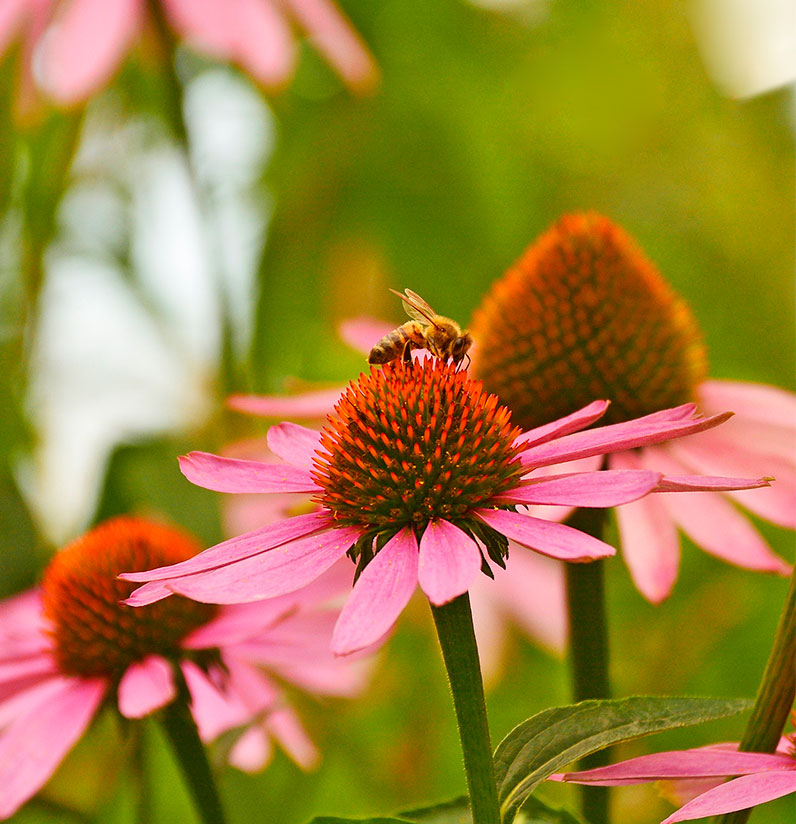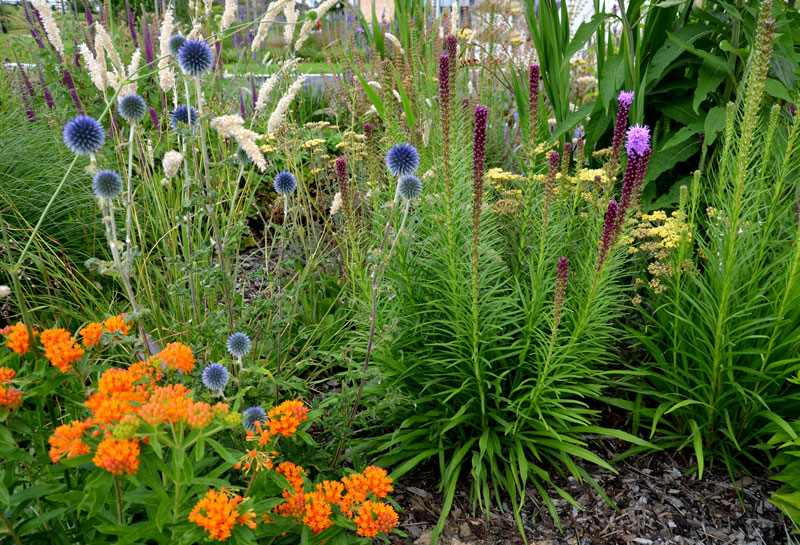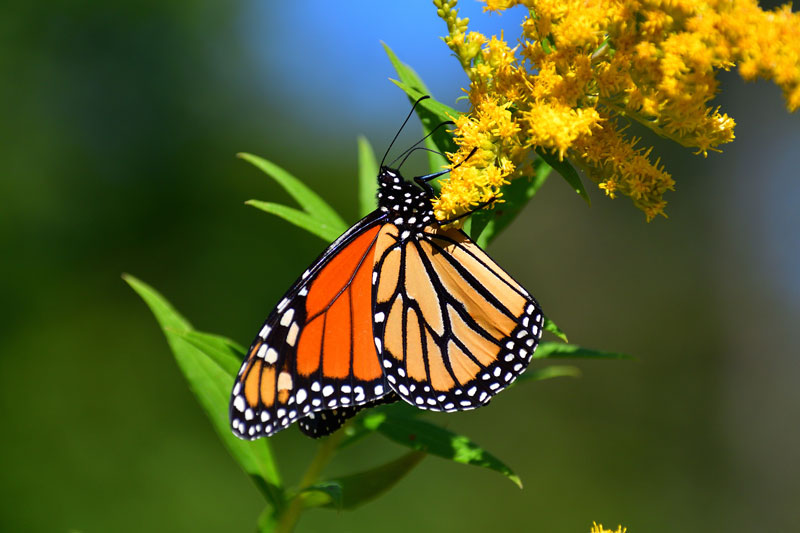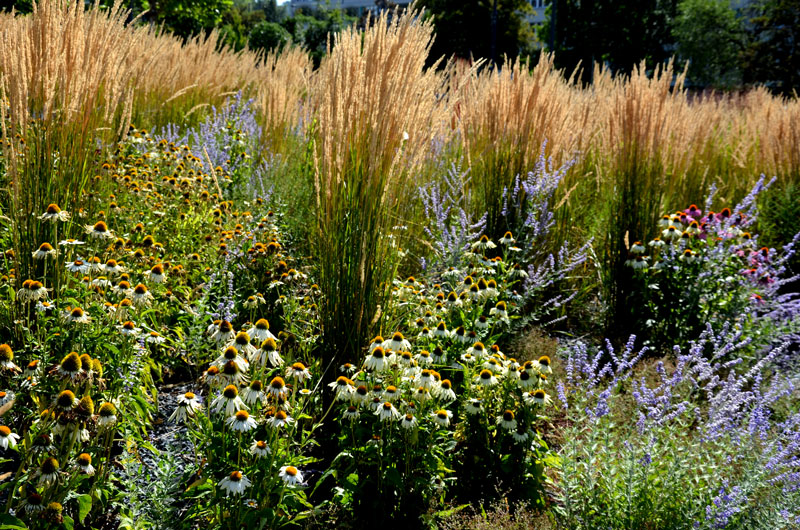Gardening is a way of showing that you believe in tomorrow.
How We Grow

Recently we’ve seen the rise of consumer concern with two issues — the use of GMO seeds and the use of neonicotinoids. Your customers have asked or will ask about both these issues in the coming season. We thought we’d print our answers to give you a start.
First, we do not use GMO seeds for any of our vegetables, herbs or perennials. Actually, there are few food crops for which there are GMO varieties available. They include corn, soybeans, cotton (for cotton seed oil) squash, papaya, sugar beets that are refined into sugar, and alfalfa for animal feed. There are really no GMO varieties in herbs or perennials.
Second, there has been a lot of press lately about the use of neonicotinoids on ornamental crops. We limit the use of neonics on pollinator plants to those applications for which there is no viable alternative and use only according to label specifications. UPDATE: At this time we do not use any neonics! Since there is no definitive answer to the decline of bees, butterflies and other pollinators, our answer is PLANT MORE FLOWERS!!
How We Grow Green for the Earth



At W. & E. Radtke, we were raised on the value of plants and the effects of plants in the environment. We try to minimize our impact on the environment whenever and wherever it is economically feasible. The movement toward a more sustainable future is not new. In a variety of ways, we’ve been attempting to “walk softly on the earth” for a long time.
- We grow the majority of our plants outdoors. This allows plants to come out of dormancy and into bloom on Mother Nature’s schedule, enabling us to use less energy for heating and cooling, and minimal hormones or growth regulators.
- Our potting soil contains leaf compost and aged pine bark. Mycorrhizae is added, reducing fertilizer by 25%.
- Plant tops and roots removed during production are composted and added back to the stock fields.
- Hay used for over-wintering our product is composted and added to our stock fields.
- Pots, trays, and labels are responsibly recycled back into the industry.
- Pesticides are used, but only when necessary and only on the affected crop. We use bio-rational products whenever possible, including predator insects, and only when scouting shows the need.
- We do not use GMO seeds for seed grown vegetables, herbs or perennials.
- We no longer use Neonicotinoids of any kind.
- Irrigation and storm water runoff is recycled to holding ponds that are used for irrigation.
- Irrigation is done on an as needed basis.
- Slow-release fertilizers are incorporated into our soil mix for less leaching.
- Liquid fertilizers are applied only as needed.
- Landscape cloth used for overwintering is reused each year.
- We send fully loaded trucks, planning the most efficient routes, as often as possible.
- We adhere to the Invasive Species Voluntary Code of Conduct for Nursery Professionals
